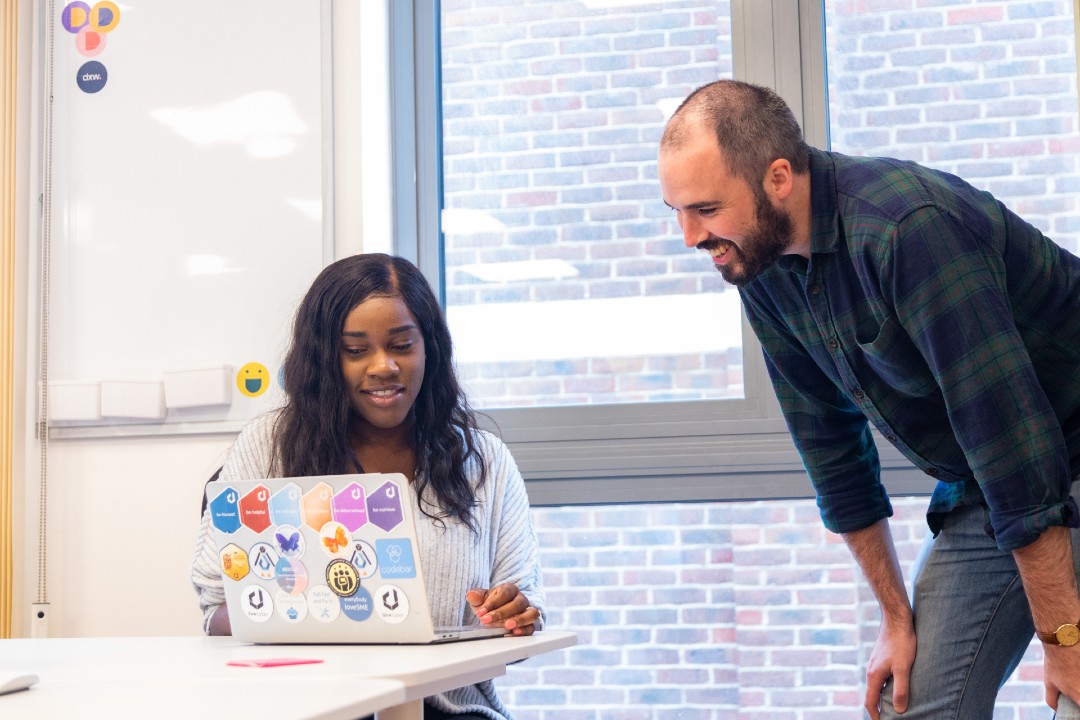
We identified the need for a collaboration service where local authorities can share work, ask questions, and connect with peers
We completed a discovery and alpha with the Department for Levelling up, Communities and Housing (DLUCH) exploring opportunities on how to improve collaboration between local authorities
There are more than 300 local authorities in the UK, often providing similar services like bin collections and housing repairs. Although the challenges these services face are often very similar, delivering a service can differ depending on budget, available technology, organisational priorities, and the skills the authority has access to.
DLUCH asked dxw to explore how local authorities can increase their awareness of what colleagues are doing in other authorities and improve their ability to collaborate together. Ultimately helping them create better public services, reducing costs, and increasing efficiency.
Result
During discovery and alpha, we found that collaboration is something local authorities are doing already. What they would benefit from is help in identifying where the opportunities for collaboration are and what best practice collaboration should look like.
Increased collaboration between local authorities can help deliver greater efficiencies by reducing the number of times a problem needs to be solved. It can also identify which issues are systemic across authorities, where skills are present and where they’re needed.
Centralising knowledge gained from delivering projects in a local authority and making this available to other authorities is valuable in the continuous development of their services. This can also give central government an indication of where funding needs to be directed.
We identified the need for a collaboration service where work in local authorities can be shared, where local authorities can ask questions, and where people can connect and learn from their peers.
What we did during discovery
Throughout discovery, dxw worked with a variety of stakeholders, both government and non-government organisations. These included LocalGov Digital, the Local Government Association (LGA), the Society for innovation, technology, and modernisation (Socitm), the London Office of Technology and Innovation (LOTI), and the Government Digital Service (GDS).
We conducted primary user research, mapping activities, desk research, and opportunity-solution mapping, to gain a comprehensive understanding of what the sector could benefit from.
We found that there were 4 different types of collaboration
Networking
Knowing where to meet others who might be facing similar challenges is the first step to building closer informal relationships between local authorities, and anecdotally this acts as a catalyst to collaboration.
Knowledge sharing
Alignment on issues and sharing approaches, research, tools, practices, and problems.
Resource sharing
Sharing resources like code, skills, budget, and access to platforms or other tangible solutions.
Delivery
Working together in partnership to solve problems and deliver new services, meeting the needs of each of the local authorities.
We reviewed groups, services, and tools that exist to stimulate partnerships and share stories, lessons learned, and resources.
As a result, we identified 2 ideas that we took forward to alpha:
- users need help to find the right people, problems, and projects for collaboration
- users need help in understanding how to do collaboration
To validate the discovery findings and prepare for the alpha, we organised 2 concurrent workshops in Leeds and London. These were attended by representatives from 20+ different local authorities and organisations.
What we did in alpha
During alpha, we helped DLUCH improve their understanding of how knowledge and resource sharing will strengthen local authorities’ ability to deliver services and meet user needs.
Following the discovery findings, we took 2 recommendations forward:
- iterate the existing Pipeline collaboration tool
- create and curate a toolkit for collaborators
LocalGov Pipeline and LocalGov Slack are the primary tools used to communicate and collaborate in local government. Throughout alpha we wanted to test and iterate the existing concept of Pipeline and assess if it could more effectively meet users’ needs. We developed our discovery findings into user needs to guide the testing and prototyping we would conduct in alpha.
To frame our prototyping, we divided users into 3 main user groups:
- consumers – users looking to utilise the experience gained by other local authorities
- publishers – users who would like to share their experiences with other local authorities
- DLUCH (and wider government) as owners of this work
Through alpha we developed 4 different iterations of a collaboration tool prototype, building on and iterating the Pipeline concept. Each prototype reflected our knowledge and understanding of how to best meet user needs through a collaboration tool.
We tested each prototype with 4-6 users from different local authorities and made iterations on what we had learned. We wanted to understand the essential content to be included within a collaboration toolkit that would help local authorities share and reuse knowledge and resources effectively and efficiently.
It’s crucial to make sure that the collaboration tool aligns with the wider journey that users take, and that the content is kept current and up to date, which will require ongoing support. We mapped several activities to identify how the collaboration tool joins up with the user’s journey, showing us how users will arrive at and exit from a collaboration tool from different channels.
At the end of the phase, we discussed ideas and recommendations that could be taken forward to beta.
What we learned
Local authorities already collaborate. However, collaborators use a huge variety of tools to share ideas and work. A dedicated service to host and structure knowledge useful to local authorities has huge value. Users will have a reliable space where they can go to find the knowledge they need, or where they can find the peers they need to connect with.
During alpha, we expanded the previous research with a focus on enhancing the collaboration tools currently in use. This additional research led us to the conclusion that the development of a new tool would bring greater efficiency to all levels of government.